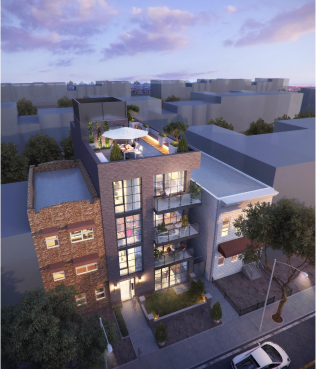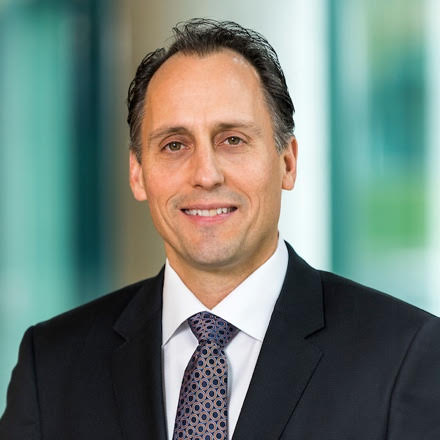Robinland achieved a very important
milestone on Jan 24, passing the
Greenlight Poll on MakerDAO’s governance forum for its MIP6
collateral onboarding application. After lots
of revisions and hard work, the team was able to overcome the
concerns Maker delegates had brought
forward. This article will give readers an inside look into the
MakerDAO process and the steps we took to
achieve a “yes”.
The Maker Application ProcessMakerDAO
is a decentralized autonomous
organization that can receive applications from any entity around
the world to access its DeFi liquidity
pool contingent on approval based on a pre-defined governance
procedure.
Typically, the
application process involves:
- The applicant submitting
applications to the governance forum
according to Maker’s pre-specified format for the
application.
- The community engages with it during
a cooling off period (usually 2–4 weeks) by posting
questions
- Community Greenlight Poll to
determine which applications to prioritize
- Maker’s ‘Core
Units’ to conduct assessment/verification
of the application along 3 dimensions: commercial, legal and
technology
- Onboarding call where the
applicants present to the community, the community asks questions,
and finalizes with an onboarding poll
to decide whether funds will be dispersed
It was not
the easiest time to navigate the Maker
process, for various reasons Robinland still decided to
apply.
Despite our confidence,
Robinland has been preparing for Maker’s MIP6 application since Q4
2021. Even though we know of cases
where the applicant failed the first time but went back, revised
and succeeded the second or third time,
we wanted to make sure that the first version of our application
is top quality.
As a result,
we
- Studied all of the applications on Maker’s forum that
are relevant to our case
- Talked to
10+ security/real estate/financial lawyers about our legal
structure and any/all regulations related to
the process
- Talked to Matthew Rabinowitz, the architect
behind the 6s capital structure to
understand its rationale and what Maker is mainly looking
for
After a long period of
preparation & revision, we finally submitted our proposal to
Maker’s forum on Nov 21. What’s next was
a 2-week cool down period in which the community engages with the
proposal and asks questions. Over the
next few days, we indeed received a few questions from the
community, and have addressed their concerns
about liquidity of security tokens, Maker’s position as ‘Senior
Secured’, reserve fund, the use of
Polymath jurisdiction accordingly.
Usually, the
greenlight poll happens on each 1st and 3rd
Monday of the month, so ours should be scheduled for 12/20.
However, due to the holiday season, ours was
pushed to 1/10 instead.
After an anxious holiday
season, our team got back and fully prepared
for the greenlight. To our surprise, during the first 3 days, the
‘leading option’ was actually a ‘No’ on
our proposal. Among the voters, 2 delegates voted no, and the
other 4 voted abstain.
Seeing
that, we quickly responded by messaging MakerDAO asking for
feedback, as we’re sure that (1) we’ve drafted
it with all the knowledge collected from other approved proposals
(2) meaning there must have been some
misunderstanding going on about key elements of our proposal (3)
or there are certain reason out of our
control that’s leading delegates to vote no, such as long backlog
or being in the transition period to a
new collateral onboarding model.
At the same time, we
received an extremely valuable piece of
feedback from @MakerMan, a major delegate, on his own delegate
forum. It provided clarity over what the
concerns are, and a chance for us to address them openly to the
entire community. Upon receiving it, the
entire team paused all other engagements and jumped onto the case
and quickly came up with a very detailed
rebuttal, addressing all of the concerns, with the key points
being:
- RBL represents fractions of a
*portfolio* of loans. This brings 2 benefits (1) mutual insurance
among the loans minimizes risk of
default of the overall portfolio (2) rather than issuing
heterogeneous tokens mapping to each underlying
projects which suffer from poor liquidity, we’re issuing a form of
homogeneous tokens that represent the
senior lien commercial real estate asset class, which brings about
much better liquidity.
- The
underlying collaterals are full-recourse right senior lien debt,
which is more secure than any asset we’ve
seen in other real estate MIP6 applications. The senior lien debt
itself is equivalent to the ‘senior
tranche’ in a capital stack MakerMan suggested. (See illustration
for details) The full-recourse right
(again not present in other real estate MIP6 proposals) is the
highest level of protection for real estate
debt projects, as it means the entirety of the value of the loan
can be traced back in the case of
default. If we were to adopt the tranching method MakerMan
suggested, defaults on the ‘first loss’ tranche
can still affect the senior lien.
We provide 3 layers
of protection for Maker:
(1) A put
option for the RBL tokens. (We will keep trying to execute until
Maker’s needs are fully
satisfied)
(2) Full-recourse right provided by the underlying
asset.
(3) Robinland’s industry
connections with a robust secondary market for senior lien
commercial real estate debt buyers, meaning we
can easily sell a loan in our portfolio in 1–2 weeks.
- We
are taking on most of the labor-intensive
steps in the process because we have the right skillset,
experience, and industry connections in our team
to do so. We are alleviating Maker from touching the dirty work
and we are achieving our mission of
serving as a bridge between Trad-Fi and DeFi — as the financial
service provider. We let all the
transformation happen within, such that our partners — real estate
developer & DeFi lenders can stay
within their comfort zone.
- There isn’t a concern over
‘conflict of interest’ as (1) all the
valuation and audit of the loan portfolio is conducted by
industry-standard third party consultancies such
as CBRE, BakerTilly, JLL, and Cushman & Wakefield (2) Role of
the liquidator is purely to execute
steps according to judicial process and state laws and all
documentations and data involved in the process
is out in the public (3) which we are more than happy to let Maker
appoint a third party to take on and/or
let Maker appoint a third party to supervise such process.
-
In fact, Robinland’s role is similar to
an Arranger: we’ve set up a structure that is robust enough to
include a large number of commercial real
estate debt assets, mitigating Maker’s risk as outlined above, and
also saving Maker from labor-intensive
work by taking on that in-house. This means we are a financial
service provider that can serve as the
bridge between Trad-Fi and DeFi specialized in the real estate
industry for the benefit of both parties.
(Project suppliers and liquidity suppliers)
The
rebuttal was a turning point in the Greenlight
voting process, as it:
- Clarified to the community that what
Robinland is proposing is much in line
with what Maker is looking for, both under the current framework
and where it’s headed.
- Showcased
Robinland’s professionalism & flexibility in adapting to major
partners’ needs such as Maker, which is
the key in a healthy long-term partnership in a changing
environment such as RWA X DeFi
From
then onwards, we received positive feedback from many delegates,
and received public support from the
forum. A few days later, we noticed that our voting result had
turned to a ‘Yes’ for its leading option,
with 55k MKR yes, 18k MKR abstain, and 17k MKR no according to the
vote breakdown. This is the best result
among all other applications who are going through the greenlight
poll in the same batch.
We’re
really proud to have passed Maker’s greenlight poll especially
during such a turbulent time. This really
gave us confidence that we’re a team who not only possess the
right expertise to produce a top-level
framework that satisfies specifications of the industry leader
(i.e. Maker), but also the flexibility and
resilience to adapt to challenges and resolve point by point, the
latter of which being the key to success
in such a changing environment.
We also know that this
is not the end, not even the beginning
to the end, but just the end of the beginning. After the
greenlight poll, we’ll be coordinating with
Maker’s Core Units under the RWF division to conduct all necessary
due diligence and assessments. In that
process, if there is anything that does not satisfy Maker’s needs,
we’ll again change and adapt. Even so
and after passing of the onboarding poll, we’ll also keep engaging
with Maker to adapt to its needs and
the overall regulatory environment.















